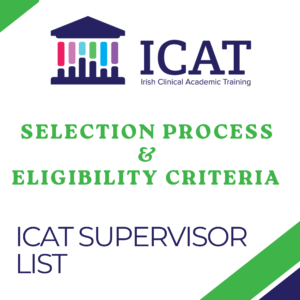Supervisor Database Search
Guidance for ICAT Supervisors
Supervisor Database
Full NameDr Richard Turkington
Patrick G Johnston Centre for Cancer Research
Queen's University Belfast
Webpage:qub.ac.uk
Email hidden; Javascript is required.
- cancer/oncology
- Medicine
- Surgery
- Pathology
- Gastroenterology
- Oncology
The Centre for Cancer Research and Cell Biology (CCRCB) is increasingly recognised on the national and international stage for both its basic and translational research programmes in addition to its rapidly evolving clinical trial expertise. The CCRCB forms the hub of the Belfast Cancer Research UK (CRUK) Centre and provides a unique environment where researchers in basic science can work alongside and interact with clinical scientists in a variety of laboratory programmes. Our unifying research theme is to develop translational outputs, i.e. biomarkers and/or novel therapeutic strategies that enable CCRCB to be at the forefront of personalized cancer medicine.
The Upper Gastrointestinal Cancer Translational research group, led by Dr Richard Turkington, focuses on the application of knowledge generated by the analysis of genomic data to improving treatment selection and chemotherapy in pancreatic and oesophago-gastric cancer. As a clinically-led and focused group we work extensively with patient samples to test our research questions and advance our discoveries into clinical trials and interventions. We collaborate with a broad range of institutions nationally and internationally as well as multiple industrial partners. Our ultimate aim is to revolutionise the treatment of upper GI cancer in order to dramatically improve survival rates.

